 |
Navy – Merchant Marine Memorial
Washington, District Of Columbia |
Located in Lady Bird Johnson Park on Columbia Island, the Navy-Merchant Marine Memorial |
 |
Fort Zachary Taylor Historic State Park
Key West, Florida |
Named after 12th president Zachary Taylor, the U. S. |
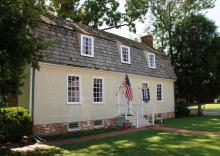 |
Wright’s Chance/Queen Anne’s County Historical Society
Centreville, Maryland |
Dating back to the 1700s, Wright's Chance is a Colonial period plantation house. |
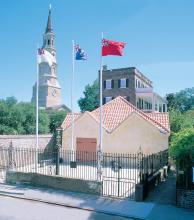 |
The Powder Magazine
Charleston, South Carolina |
Construction began on The Powder Magazine in 1712 and was completed by 1713, making it |
 |
Del Webb Sun Cities Museum
Sun City, Arizona |
The Sun Cities Area Historical Society/Del Webb Sun Cities Museum is dedicated to the p |
 |
Steamship Historical Society of America
East Providence, Rhode Island |
THE STEAMSHIP HISTORICAL SOCIETY OF AMERICA was established in 1935 as a means of bring |
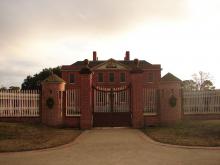 |
Tryon Palace
New Bern, North Carolina |
Tryon Palace is a modern recreation of the original palace, which served as the royal g |
 |
Hampton-Preston Mansion & Gardens
Columbia, South Carolina |
One of Columbia's oldest remaining historic houses, the Hampton-Preston Mansion was hom |
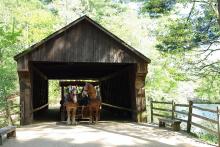 |
Old Sturbridge Village
Sturbridge, Massachusetts |
Old Sturbridge Village is the largest living history museum in New England, spanning o |
 |
Augustus Lutheran Church
Collegeville, Pennsylvania |
The first church building of Augustus Lutheran Church is still standing and is the olde |
 |
St. Fidelis Catholic Church
Victoria, Kansas |
With a seating capacity of 1,100, St. |
 |
First Reformed Church Of Fishkill
Fishkill, New York |
The church itself is one of the most historic buildings in all of Dutchess County. |
 |
Fort Mcree
Gulf Breeze, Florida |
At the eastern end of Perdido Key is an area once used by the U.S. |
 |
Fort Monroe Casemate Museum
Hampton, Virginia |
Completed in 1834 and named in honor of President Monroe, t |
 |
Fort McHenry National Monument And Historic Shrine
Baltimore, Maryland |
The monument honors the fort which inspired Francis Scott Key to pen the National Anthe |
 |
Point State Park
Pittsburgh, Pennsylvania |
Nicknamed the "Forks of the Ohio," the park is not only the site of a confluence of maj |
 |
Shiloh National Military Park
Shiloh, Tennessee |
Both the Shiloh Battlefield and the Corinth Civil War Interpretive Center have large ex |
 |
Fort Kaskaskia
Ellis Grove, Illinois |
Founded in 1703, the town was for more than a century the region’s principal commercial |
 |
Fort St. Joseph Museum
Niles, Michigan |
Featured exhibits portray the history of Fort St. |
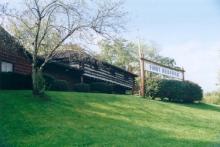 |
Fort Adams
Newport, Rhode Island |
Just a short drive or a water taxi ride across Newport Harbor stands the largest coasta |
 |
Governors Island
New York, New York |
Over the years, the island has served as the backdrop for a number of historic events. |
 |
Chelsea Plantation
West Point, Virginia |
Furnished with period antiques and a large collection of paintings, this 1709 brick hou |
 |
Museum Of Appalachia
Clinton, Tennessee |
With more than 30 historic log buildings gathered onto 63 acres, which date from the 19 |
 |
Houmas House
Darrow, Louisiana |
The Houmas house is significant in the area of architecture as an excellent example of |
 |
Morven Museum & Garden
Princeton, New Jersey |
For more than 200 years Morven has played a role in the history of New Jersey and the n |
 |
Billings Farm & Museum
Woodstock, Vermont |
The Billings Farm was established in 1871 by Frederick Billings, a native Vermonter who |
 |
Museum Of Scott County
Huntsville, Tennessee |
Located on the campus of Scott High School in Huntsville Tennessee, the Museum of Scott |
 |
Saint Paul's Church National Historic Site
Mount Vernon, New York |
St. |
 |
Ninety Six National Historic Site
Ninety Six, South Carolina |
More Revolutionary War battles & skirmishes took place in South Carolina than any o |
 |
Old Slater Mill Historic Site
Pawtucket, Rhode Island |
Enjoy the exhibits, collections of artifacts, grounds and gallery, research library, th |































